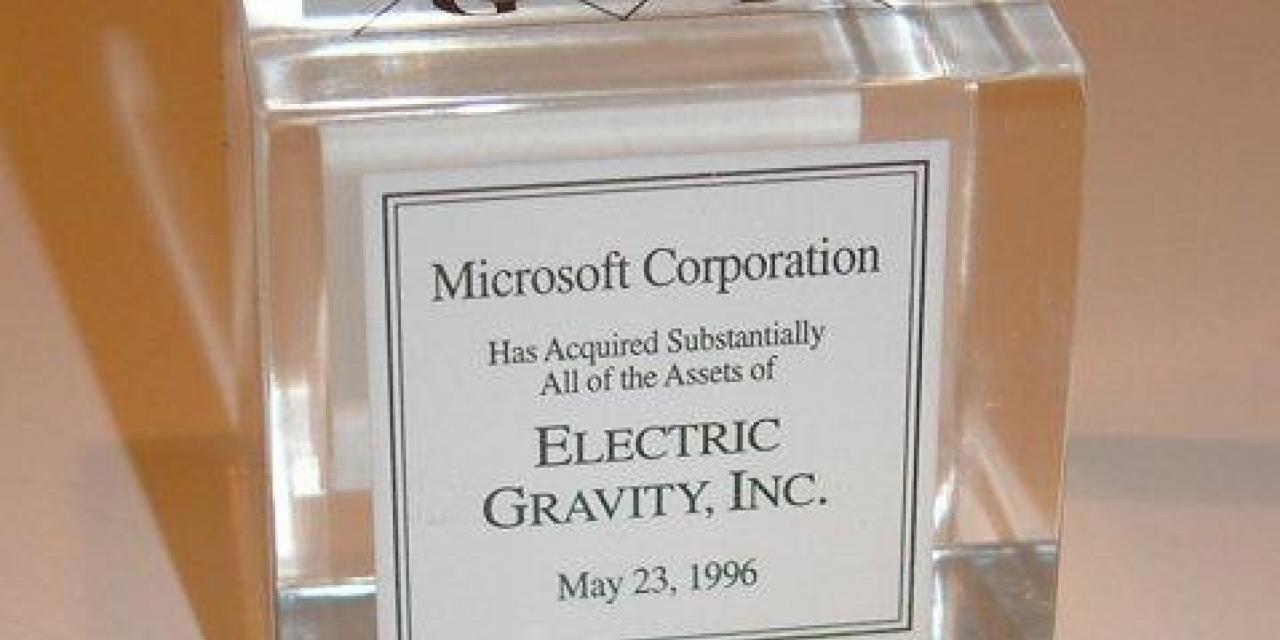
In this brief history of Microsoft's first involvement with online gaming, Claudius Tiulea will lead you on an exploration of how Bill Gates' idea of the "Internet Tidal Wave" was turned into a multi-million dollar online gaming community. Included in this article are exclusive interviews with Steve Murch, MSN Zone's first CEO and Don Ryan, Studio CEO Manager for the Zone.
Online Communities have been growing rapidly since the early dot-com-boom. In 1995, Bill Gates had his own wake-up call. He wrote a book: The Internet Tidal Wave. It described the Internet and the endless opportunities surrounding it. Gates followed his own advice, and in 1996, Microsoft acquired Hotmail - offering free email services - and Zone.com - offering free online-games. The latter became the predecessor of Microsoft Games.
In May 1996, a small game-site known as Electric Gravity was acquired by Microsoft, and quickly morphed into being the new MSN Zone. Steve Murch, the first CEO of MSN Zone (1996-1997), remembers the way he set three priorities for the site: build a matchmaking ground for multiplayer games; combine free-, retail- and premium-games; and make it social.
It is all about the people, Murch explains.
The site exploded in popularity by following Murch's business plan. From 1998-2001, the Zone was considered to be the number-one game-site. MSN Zone was Miss Internet.
Warren Buffet, personal friend to Bill Gates and infamous businessman; Garry Kasparov, Chess Champion; and the Sheik of The United Arab Emirates - they all played on the Zone.
New games such as Age of Empires and Asheron's Call recruited new players, making the Zone a popular- and a truly multi-national community.
Things changed in 2001 when retail-games were for most part no longer on the menu.
New security problems arose and complaints reached new highs - enough to make Eminem's lawyers ask for a raise. These are still challenges the Zone has to face to this day.
Free to work-for-free
It all started when AOL-Games took a first step in offering pay-to-play games and new community enchantments. The site was an Agora for many players around the globe. To supply the needed support for these new customers, AOL started a volunteer program. Selected members would assist other members utilizing their knowledge and expertise. This proved to be very successful. Minimum expenses - because the volunteers were not paid - and a healthy profit - because it helped AOL dominate the market.
MSN Zone followed the same trend. Their Volunteer Z-Team team offered five-technical-support, game-tourneys and lobby-moderation. In October 2000, Participate Systems Inc., a Chicago-based consulting firm, took over the Z-Team.
Many tend to question the current role of the MemberPlus program, and even the site, claiming that the profit is non-existent.
Ron Pitman, former Community Coordinator for the Z-team, is sceptical:
Most would question if Microsoft didn't have a game site. Name recognition in the industry actually does have a value. Without any proof of my own, I find it very unlikely [that] Zone.com was ever expected to become profitable, he says.
On the other hand, Participate Systems Inc. (PSI), is not mining gold either. Stephen Miller, who previously worked for Zone.com, tried to win the contract by biding on the MemberPlus Program. He requested 300.000 US dollars to manage the Community for a year. The sum would barely cover the staff expenses; the budget having zero-percent profit margins.
It is believed that PSI had to outbid Miller when winning the contract for another term. For PSI, making a profit is not a priority, but associating themselves with Microsoft is.
Microsoft Games discovered that they could use Zone's expertise and resources to improve their other projects. At the moment, MSN Zone works head-to-head with other Microsoft entities. MSN Messenger offers free and pay-to-play Deluxe games, most of which are developed by the Zone.
With Xbox, the collaboration is tighter. Don Ryan, Studio CEO Manager for the Zone, is excited about the site's involvement:
Most recently, we've been collaborating with the Xbox Live team to provide content for the Xbox Live Arcade offering. Xbox Live Arcade is a new online experience (launching this fall) that will bring broad-appeal, casual games directly to Xbox consoles via the Xbox Live service. Gamers will have access to classic favourites, arcade, puzzle, trivia, card, board and other games on their television with the added social features of Xbox Live, including multiplayer game-play and voice chat, Ryan says.
And this is what the site wants to grow strong at - expanding its portfolio of free and downloadable games. Ryan adds that the site will provide more titles that appeal to 18-45 year old males by offering more sports and racing titles.
Now when Microsoft Games becomes better defined; when there are separate sections covering console and PC games, MSN Zone will surely become a competitive entity within Microsoft, able to tease gamers with new and free games.








